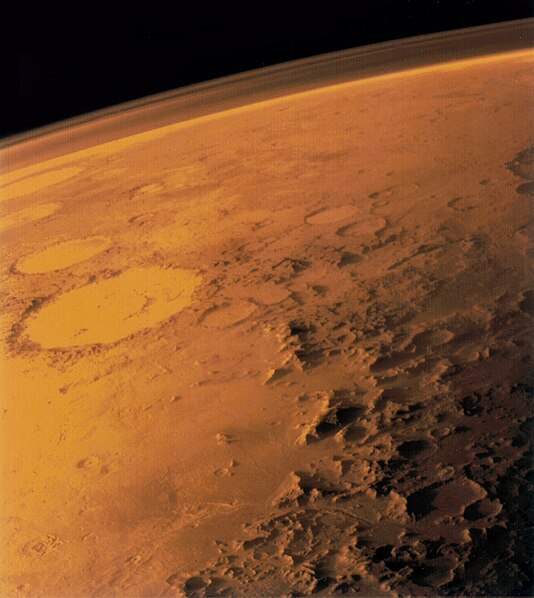Despite sterilization efforts made to reduce the bioload on spacecraft, recent research has shown that diverse microbial communities remain at the time of launch, including acinetobacter, bacillus, escherichia, staphylococcus and streptococcus.
For the new study, researchers from the University of Central Florida replicated Mars-like conditions by inducing desiccation, hypobaria, low temperatures, and UV irradiation. During the week-long effort they found that Escherichia coli, a potential spacecraft contaminant, may likely survive but not grow on the surface of Mars if it were shielded from UV irradiation by thin layers of dust or UV-protected niches in spacecraft.

Mars.
(photo credit: wikipedia)
"If long-term microbial survival is possible on Mars, then past and future explorations of Mars may provide the microbial inoculum for seeding Mars with terrestrial life," say the researchers. "Thus, a diversity of microbial species should be studied to characterize their potential for long term survival on Mars."
Citation: Bonnie J. Berry, David G. Jenkins, Andrew C. Schuerger, 'Effects of Simulated Mars Conditions on the Survival and Growth of Escherichia coli and Serratia liquefaciens', Applied and Environmental Microbiology, April 2010, 2377-2386, 76(8); doi:10.1128/AEM.02147-09






Comments